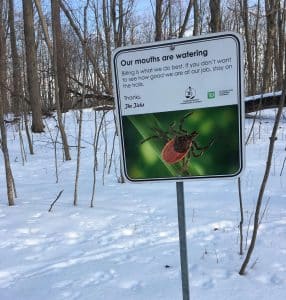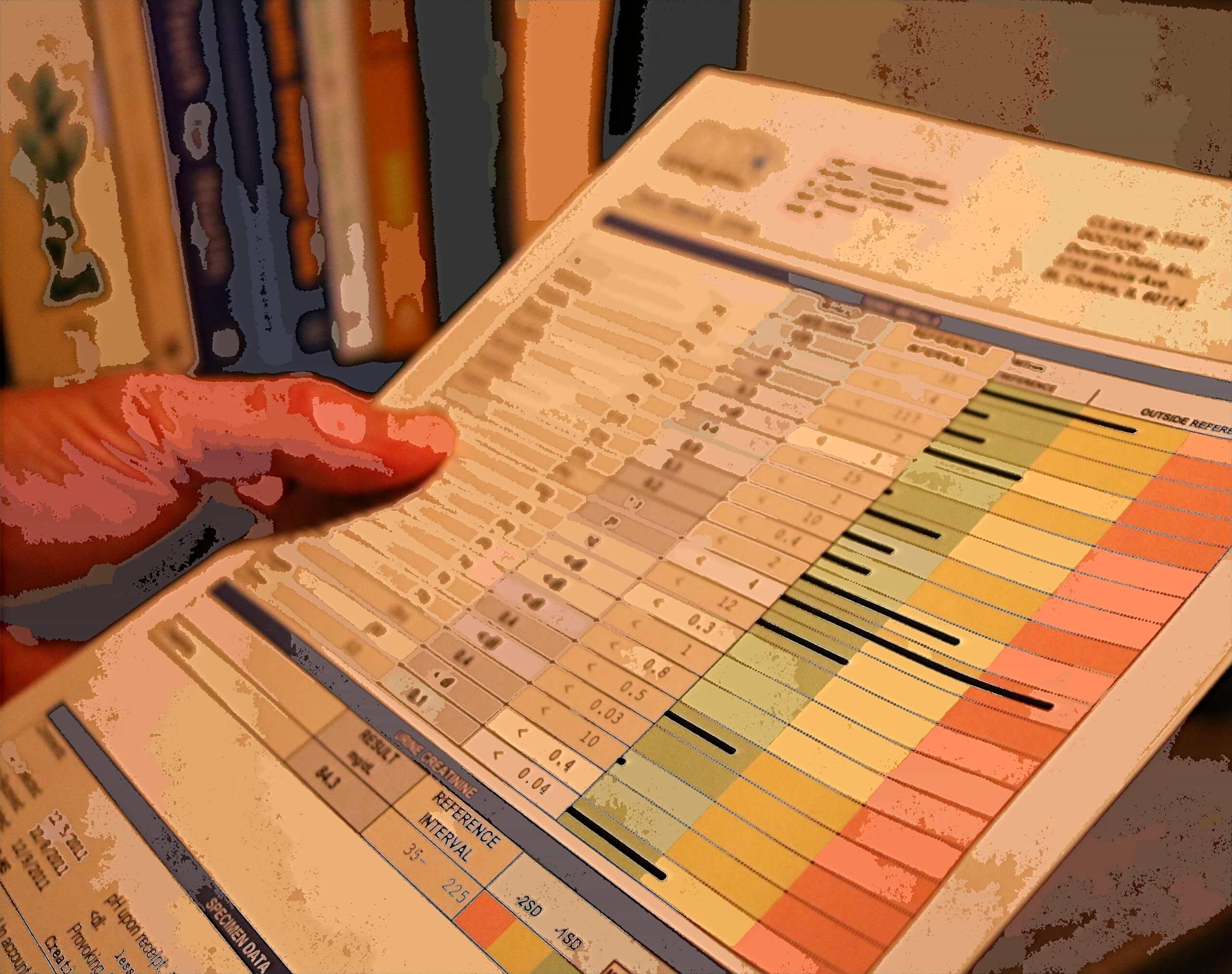Why Environmentally-Responsible Choices are Also Healthy Choices
“Climate change is the greatest threat to global health in the 21st century.” World Health Organization
Many of us know that healthy lifestyle choices are also environmentally responsible choices. We know, for example, that biking to work rather than driving, is healthy. We know that reducing our exposure to synthetic chemicals by using natural household cleaners and eating organic food is also correlated to better health. But have you stopped to consider why this relationship exists?

 Where did this Lyme epidemic come from? “Tick-checks” weren’t a thing when we were kids. Now, ticks not only swarm our conservation areas, but also our gardens and children’s playgrounds. More than 1/3 of them in our area are infected with Borrelia, the bacteria believed to cause Lyme Disease, and an unknown number are infected with Lyme “co-infections” such as Bartonella and Anaplasma. Our instinctual response to this threat is to kill tick populations as quickly as possible… But history, ecological principles, integrative medicine and current research all teach us that this approach doesn’t work. A more sophisticated approach, one that acknowledges underlying causes of this epidemic, is urgently required.
Where did this Lyme epidemic come from? “Tick-checks” weren’t a thing when we were kids. Now, ticks not only swarm our conservation areas, but also our gardens and children’s playgrounds. More than 1/3 of them in our area are infected with Borrelia, the bacteria believed to cause Lyme Disease, and an unknown number are infected with Lyme “co-infections” such as Bartonella and Anaplasma. Our instinctual response to this threat is to kill tick populations as quickly as possible… But history, ecological principles, integrative medicine and current research all teach us that this approach doesn’t work. A more sophisticated approach, one that acknowledges underlying causes of this epidemic, is urgently required. I need to start this article with sharing my person bias: I love gardening. This hasn’t always been the case but a few years ago we started our own vegetable garden. Now I have the gardening “bug”. I have been delighted to find just how much peace and calm digging in the dirt gives me, not to mention the loads of fresh, healthy produce. I think you should start a garden too…
I need to start this article with sharing my person bias: I love gardening. This hasn’t always been the case but a few years ago we started our own vegetable garden. Now I have the gardening “bug”. I have been delighted to find just how much peace and calm digging in the dirt gives me, not to mention the loads of fresh, healthy produce. I think you should start a garden too… “If we all did the things we are really capable of doing, we would literally astound ourselves.”
“If we all did the things we are really capable of doing, we would literally astound ourselves.” Later this month, KIHC’s Energy Therapist,
Later this month, KIHC’s Energy Therapist, 
 Chronic pain is a widespread, disabling condition than affects an estimated 20% of people in the world. Pain is usually regarded as chronic if it lasts or reoccurs for periods of 3 to 6 months, which is beyond the normal amount of time for healing. Chronic pain can contribute to anxiety, depression, disability, sleep disturbances, poor quality of life and certainly impacts healthcare costs.
Chronic pain is a widespread, disabling condition than affects an estimated 20% of people in the world. Pain is usually regarded as chronic if it lasts or reoccurs for periods of 3 to 6 months, which is beyond the normal amount of time for healing. Chronic pain can contribute to anxiety, depression, disability, sleep disturbances, poor quality of life and certainly impacts healthcare costs. I’d like to share with you a
I’d like to share with you a 
